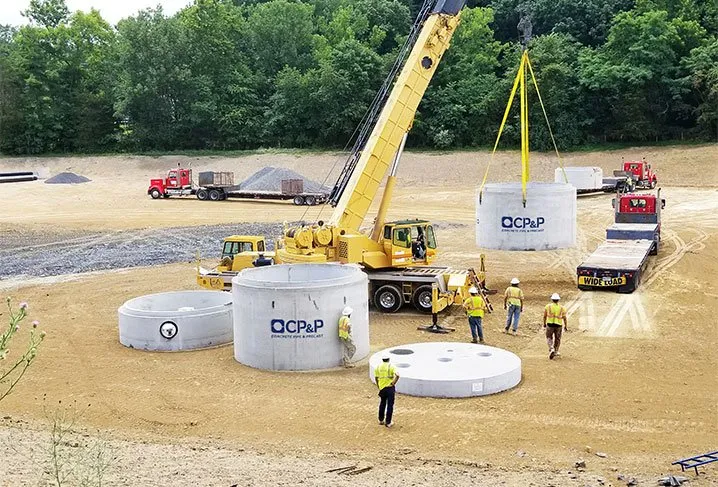Table of Contents
- Introduction to Luxury Real Estate Trends
- Sustainability: A Growing Demand
- Smart Homes and Technology Integration
- The Rise of Wellness Features
- Location and Connectivity: Key Factors
- Personalization and Customization in Home Designs
- The Role of Virtual Reality in Home Buying
- Conclusion
Introduction to Luxury Real Estate Trends
The luxury real estate market constantly evolves, adapting to new tastes, technologies, and environmental considerations. Known for its commitment to delivering opulence and sophistication, this market segment caters to a discerning clientele who demand quality and foresight. Understanding current trends is indispensable for buyers and sellers who aim to stay competitive. Experts like Manhattan NY real estate expert Bianca D’Alessio underscore the importance of being informed in this fast-paced environment.
While luxury properties offer sumptuous living, they also symbolize status and investment. Recognizing these nuanced layers can significantly enhance one’s approach to selling or acquiring a notable estate. The interplay of design, technology, and environment in luxury real estate hints at a broader trend—a shift towards creating more than just homes but lifestyle experiences.
Sustainability: A Growing Demand
Sustainability has swiftly transitioned from a buzzword to a guiding principle in modern architecture and design, particularly in the luxury sector. Prospective homeowners are increasingly conscious of their environmental footprint, and demand for sustainable features is rising. From green roofs to solar energy, the incorporation of eco-friendly elements not only minimizes impact on the environment but reduces energy costs in the long term.
This orientation is highlighted by the insights from Green Building Trends, which stress the dual advantages of financial savings and environmental stewardship. As communities and regulatory bodies put pressure on reducing carbon footprints, properties with sustainable features are more appealing and often command higher market values. The integration of sustainability in luxury homes reflects a broader societal trend favoring responsibility alongside comfort.
Smart Homes and Technology Integration
The advent of smart home technology has marked a paradigm shift in how modern homeowners interact with their living spaces. At the forefront are luxury properties that embrace many innovations, from intuitive climate control systems to advanced security networks that support these needs. Smart technology not only offers convenience but also presents an opportunity for energy management and enhanced security.
As the tech revolution intertwines with real estate, buyers look beyond traditional luxury elements to modern solutions, offering a seamless lifestyle. Imagine controlling lighting and home appliances with a voice command or a smartphone; such experiences redefine luxury living. The integration of cutting-edge technology sets a new standard that caters to both efficiency and entertainment, providing a futuristic touch that is becoming increasingly expected.
The Rise of Wellness Features
The emphasis on wellness has permeated the luxury real estate market, translating into architectural elements and lifestyle amenities prioritizing health. With a focus on mental and physical well-being, high-end homes now frequently incorporate features such as air and water purification systems, meditation spaces, and fitness centers.
These wellness-oriented additions reflect a growing consumer desire to integrate healthier living environments. Such features are not only beneficial for the residents’ health but also enhance the home’s aesthetic and functional appeal. As daily life becomes more hectic, the demand for homes that offer a sanctuary from the external world grows, making wellness an essential aspect of modern luxury living.
Location and Connectivity: Key Factors
While a luxury property’s intrinsic quality is crucial, its location can be even more defining. In an increasingly connected world, accessibility and proximity to urban amenities are valuable aspects that enhance a property’s desirability. Savvy buyers seek locations that offer convenience, connectivity, and cultural access, enhancing their lifestyle and investment potential.
The Global Cities Report illustrates the importance of location in the real estate market, offering insights into emerging cities and established areas that offer high returns. These thoughtfully situated properties balance urban vibrancy and serene exclusivity, appealing to those who value connectivity without compromising tranquility.
Personalization and Customization in Home Designs
Personalization is not just a preference but a prerequisite in luxury real estate. Buyers are eager to inject their personalities and lifestyles into their homes, seeking bespoke designs that reflect their unique tastes and specifications. Customization opportunities range from selecting high-end finishes and fixtures to designing innovative floor plans and landscaping solutions.
This trend towards personalization offers homeowners the flexibility to create spaces that cater directly to their needs, boosting both their enjoyment and the property’s market value. Luxury developers respond to these desires with creative offerings, ensuring individualized touches are part of the home’s core appeal.
The Role of Virtual Reality in Home Buying
As the digital landscape evolves, virtual reality (VR) becomes a powerful tool in luxury real estate. Offering immersive experiences that allow potential buyers to tour properties from anywhere in the world, VR brings convenience and clarity to home buying. This technology reduces the need for physical visits, saving time while offering realistic property previews.
In high-end markets, where international buyers are common, VR provides a competitive edge, enabling realistic walkthroughs and detailed property views. By presenting a property in its best light from afar, VR ensures global reach and enhances buyer engagement, ultimately transforming the traditional buyer experience.
Conclusion
The luxury real estate market is distinguished by its ability to evolve and embrace new trends that cater to the sophisticated demands of modern buyers. With an emphasis on sustainability, technology, wellness, strategic location, personalization, and virtual reality, today’s luxury offerings set the stage for luxurious and forward-thinking lifestyles. Staying abreast of these trends ensures that buyers and sellers are well-prepared to navigate this dynamic and prestigious market, where the future is as captivating as it is promising.










